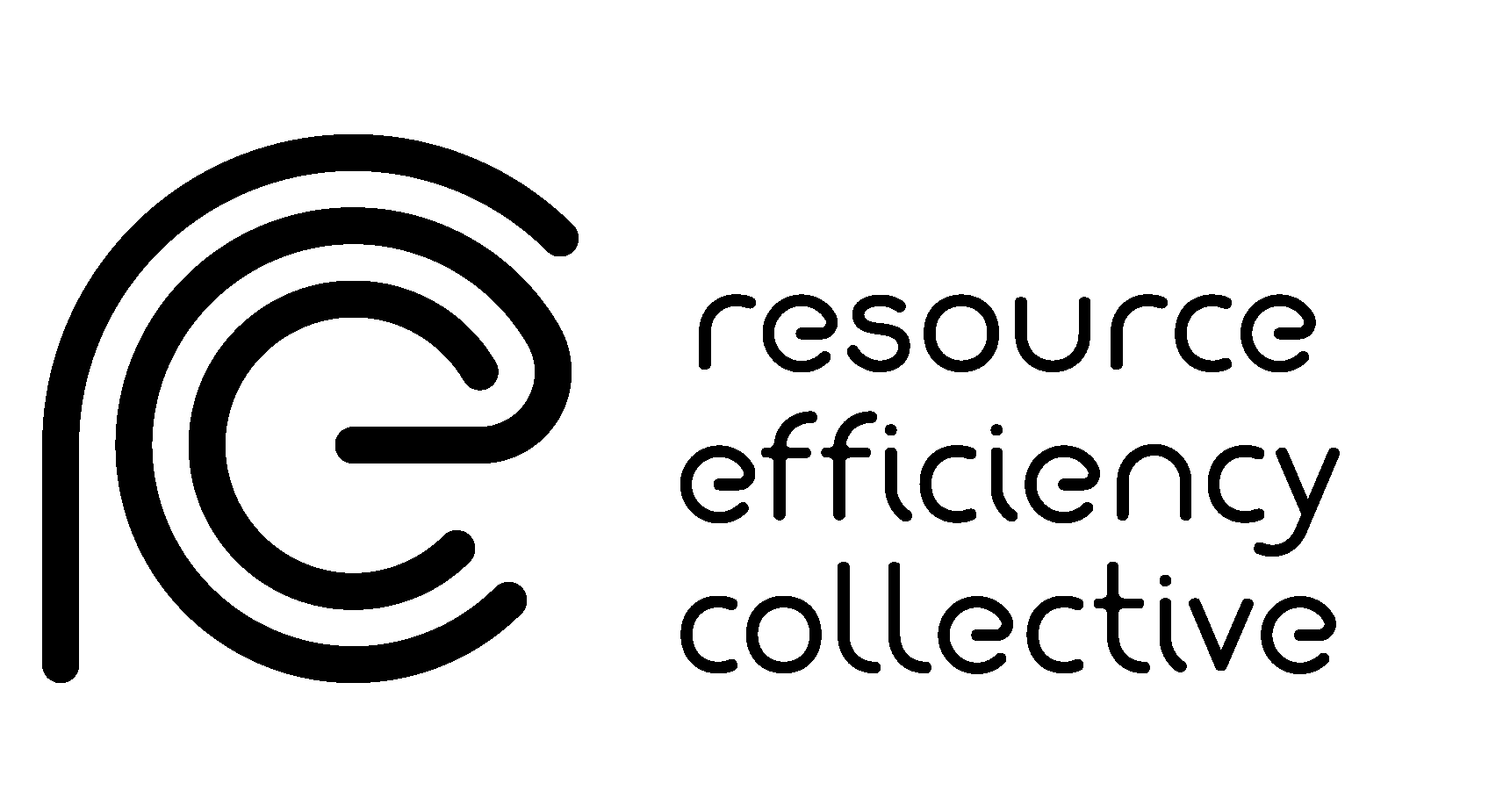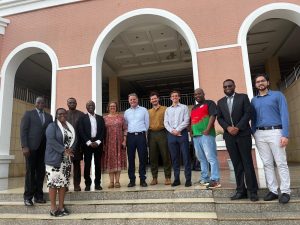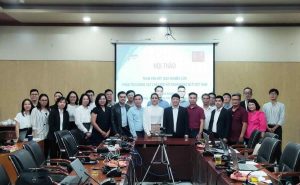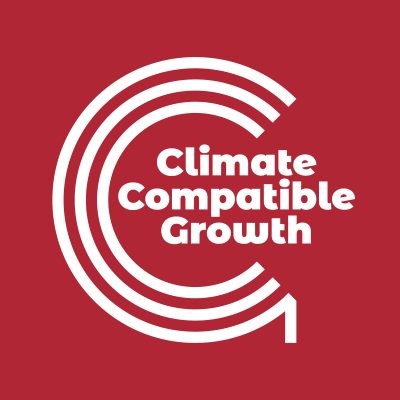
CCG: Climate Compatible Growth
The Climate Compatible Growth (CCG) programme is funded by the UK’s Foreign Development and Commonwealth Office (FCDO) to support investment in sustainable energy and transport systems to meet development priorities in the Global South.
CCG provides research and global public goods. These are to help countries develop economic strategies, plans, and policies to attract investment into low-carbon growth opportunities across multiple sectors. These are to support growth aspirations and better meet the SDGs.
The long-term aims of CCG are closely aligned with the aims of the COP26 Energy and Transport campaigns to accelerate the low-carbon transition.

CPH: Cambridge Public Health
The aim of Cambridge Public Health is to tackle society’s most pressing public health problems through international collaboration. From disease, to hunger, to mental health, we are working to improve research evidence, capacity building and our impact to build a better world for us all. Cambridge Public Health consists of five core pillars and five cross-cutting themes, each of which interlinks to form a new, broad centre of excellence in public health research. Resource Efficiency Collective’s Jonathan is co-leading the Sustainability Pillar.

RECBE: Resource Efficiency in Construction and the Built Environment
RECBE responds to challenges faced in the construction and operation of the built environment by seeking to answer the question: how can the built environment deliver future energy and material services, while at the same time reducing resource use and environmental impact? RECBE provides a regular forum for academics, designers, engineers, contractors and policy makers to explore these ideas, to formulate novel solutions, and collaborate together on research and implementation projects.

Exergy Economics
Exergy Economics explore the relationships between energy use and the wellbeing of our societies and economies. The research group focuses on exergy – the portion of energy flows that can be put to productive use. Exergy Economics seeks to develop a framework for applying the concept of exergy to large scale studies of energy and resource use. This will enable the group to examine historical patterns of energy use and explore future possibilities for decoupling energy consumption from economic growth.

BuildZero
BuildZero’s vision is one of a building stock that no longer relies on extraction of new resources, by leveraging the circular economy (CE) to meet materials needs, and eliminating both waste and carbon emissions from material extraction and production. Using this highly ambitious end goal as a springboard, we will explore CE solutions across multiple scales, identified, co-created and co-delivered with our highly engaged industrial consortium, to assess the extent to which this vision is achievable nationally, regionally and in relation to individual buildings and determine the conditions in which the BuildZero vision leads to favourable social, environmental, and economic outcomes. The new knowledge base will provide a platform to enable these solutions to be translated into practice at scale, catalysing regional and national policy to stimulate real change.
Past Projects

Petrochemicals & Climate Change Conference 2024
This conference will be a meeting place for academics and staff from other research focused organisations who take an interest in the central role that the petrochemical and plastics industries play in contributing to the planetary crises of climate change, global pollution and biodiversity loss. We see that this conference could provide a great opportunity for learning across fields of research that are rarely connected, enabling discussion and debate amongst people from a wide range of disciplines.
Find out more about the conference here.
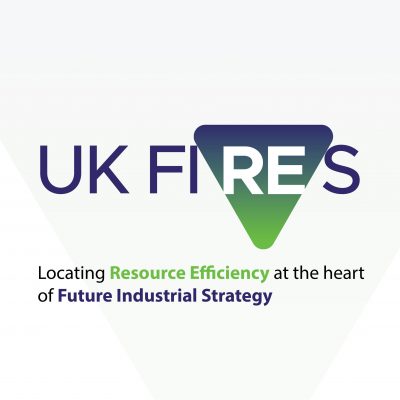
UK FIRES: Locating Resource Efficiency at the heart of Future Industrial Strategy
UK FIRES is a 5-year research programme funded by £5m of UKRI support and the subscriptions of an active and growing industrial consortium. With academics from six universities spanning from materials engineering through data science to economics, corporate strategy and policy and an industry consortium spanning from mining through construction and manufacturing to final goods.
UK FIRES takes a pragmatic approach: they focus only on technologies that are available today and exclude those that have yet to be proven at meaningful scale, since they simply may not be ready in time. In 2050 they aim to meet the energy demand of UK society by non-emitting electricity generation

C-THRU: Carbon clarity in the global petrochemical supply chain
C-THRU is a 3-year, US$4m, international research project which aims to deliver foresight on the future interventions and innovation opportunities in the petrochemical sector required to minimise greenhouse gas (GHG) emissions. This will be achieved by delivering the world’s most comprehensive, reliable and transparent account of current and future emissions for the global petrochemical sector. This account and the underlying modelling methods, tools and data will support strategic policy and business decision-making to promote the sustainability of the petrochemical sector, making it compatible with climate change mitigation goals.
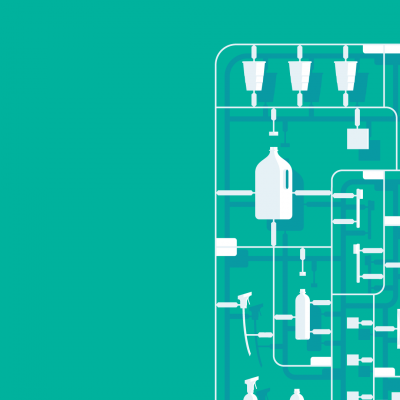
Plastics in the UK
There aren’t official statistics about plastics in the UK, and only disparate publications from PlasticsEurope and Waste & Resources Action Programme (WRAP) show us snapshots of a few stages along the supply chain of plastics. The data are still insufficient to tell us how much and which types of plastics are used every year, where they came from, on what products they are used and how they are disposed of. And knowing this is essential to identify what problems are being caused by plastics and what opportunities exist to mitigate them.
For this report, we had to conciliate available data on plastics with UK trade statistics in order to estimate the polymer composition in annual trade flows. By doing this, we were able to trace the flows of various polymers from production to transformation, use, and disposal.

LCCT Low Carbon Concrete Technologies: Understanding and Implementation
LCCT is a three-month project, funded by an EPSRC IAA Impact Starter Grant, which aims to create a new methodology for assessing potential of low-carbon concrete, test this with industrial practitioners, and develop this into a pre-standard to be used by the wider industry.

S2UPPlant: Smart Sustainable Packaging from Plants
The Smart Sustainable Plastic Packaging from Plants (S2UPPlant) project led by Prof James Elliott (PI, Department of Materials Science & Metallurgy), Prof Paul Dupree (CoI, Department of Biochemistry ) and Dr Jonathan Cullen (CoI, Department of Engineering) will research into changing the genetics of plants or blend with other materials from food or agricultural waste. The aim is to engineer materials with new functional properties, such as improved strength or better protection, reducing the volume of plastic packaging needed to keep food fresh.
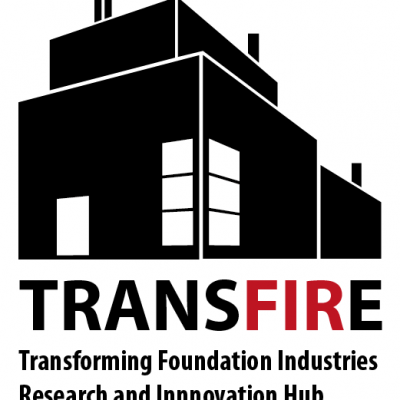
TransFIRe: Transforming Foundation Industries Research and Innovation hub
TransFIRe (Transforming Foundation Industries Research and Innovation hub) was developed in response to the Industrial Strategy Challenge Fund call to transform the Foundation Industries: Chemicals, Cement, Ceramics, Glass, Metals and Paper.
This programme will develop a self-sustaining Hub of expertise to support the Foundation Industries’ transformation into non-polluting, resource efficient modern competitive manufactories working in harmony with the communities in which they are situated, providing attractive places to be employed with unparalleled ED&I performance.

CircNexST: Advancing the steel industry’s progress towards the circular economy
Within the steel industry, leading companies and professional bodies have sought to promote and embody the circular economy to advance sector sustainability. One way to achieve this aim is via a more holistic approach to resource management. This requires the development of alternative conceptual frameworks such as the SFS nexus.
The SFS nexus explicitly highlights the interactions including trade-offs, between energy and material flows (e.g. coal, iron ore), material stocks (e.g. buildings, vehicles) and service provision (e.g. shelter, mobility). This project aims to comprehensively evaluate the extent of which the SFS nexus can support the steel sector’s positioning in the circular economy; determine the feasibility of achieving circularity for a specific Tata Steel product line; model future steel availability and demand under various circular economy scenarios.
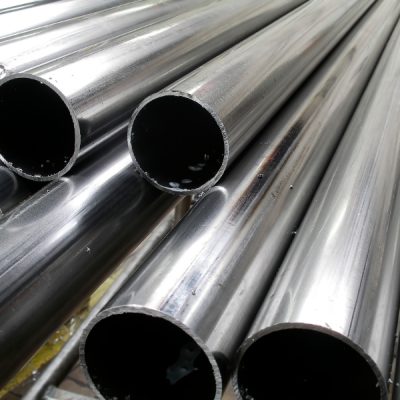
Exergy calculator
We have created an exergy calculator which returns values of chemical exergy for a wide range of materials. The database of exergy values, includes all known published literature values for substances and calculates additional values based on published compositions of more complex materials. Where values differ, a range is given, along with the specific referenced values, to allow the user to choose the most appropriate value.
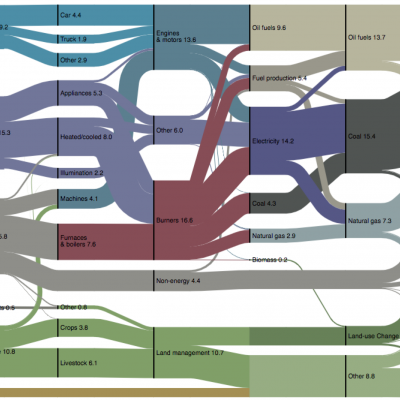
Greenhouse Gas Emissions
Governments use national greenhouse gas (GHG) inventories to quantify the impact of mitigation options at the sectoral level and to scrutinize emissions reduction plans. The use of an integrated systems approach to global GHG emissions reveals the true impacts of human activity and provides a useful framework to critically assess plans for greenhouse gas mitigation. Working with the Leonardo Di Caprio foundation this project aimed to create a sankey diagram mapping global GHG emissions in 2014 from fuel to final service.

ECM: Energy Cost Metric
A buildings energy committee at the University of Cambridge conceived the Energy Cost Metric (ECM) which seeks to bridge the performance gap between cost and energy considerations in a transparent and effective manner. The ECM relates the total lifecycle energy required to construct, operate, maintain and take-down the building, to the construction costs using the formula: F=E+C/α, where 𝐹 is the objective function, 𝐸 captures whole-life energy, 𝐶 building capital cost, and 𝛼 is a weighted factor related to the anticipated cost of energy. The metric is agnostic to the scale and detail of considered design options and was put into application at West Cambridge Development Site to guide design decisions from initial stage to construction.
